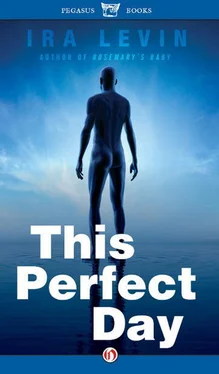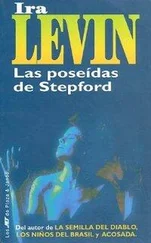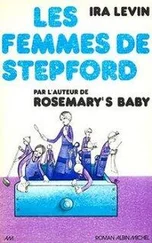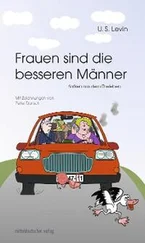When they came out of the elevator into the ground-level lobby, Chip’s parents and Peace were waiting for them. “Where have you been?” Chip’s father asked, and Peace, holding a miniature orange memory bank (not really), said, “We’ve been waiting so long!”
“We were looking at Uni,” Papa Jan said.
Chip’s father said, “All this time?”
“That’s right.”
“You were supposed to move on and let other members have their turn.”
“You were, Mike,” Papa Jan said, smiling. “ My earpiece said ‘Jan old friend, it’s good to see you! You and your grandson can stay and look as long as you like!’”
Chip’s father turned away, not smiling.
They went to the canteen, claimed cakes and cokes—except Papa Jan, who wasn’t hungry—and took them out to the picnic area behind the dome. Papa Jan pointed out Mount Love to Chip and told him more about the drilling of the tunnel, which Chip’s father was surprised to hear about—a tunnel to bring in thirty-six not-so-big memory banks. Papa Jan told him that there were more banks on a lower level, but he didn’t say how many or how big they were, or how cold and how lifeless. Chip didn’t either. It gave him an odd feeling, knowing there was something that he and Papa Jan knew and weren’t telling the others; it made the two of them different from the others, and the same as each other, at least a little…
When they had eaten, they walked to the carport and got on the claim line. Papa Jan stayed with them until they were near the scanners; then he left, explaining that he would wait and go home with two friends from Riverbend who were visiting Uni later in the day. “Riverbend” was his name for ’55131, where he lived.
The next time Chip saw Bob NE, his adviser, he told him about Papa Jan; that he didn’t like Uni and wanted to argue with it and explain things to it.
Bob, smiling, said, “That happens sometimes with members your grandfather’s age, Li. It’s nothing to worry about.”
“But can’t you tell Uni?” Chip said. “Maybe he can have an extra treatment, or a stronger one.”
“Li,” Bob said, leaning forward across his desk, “the different chemicals we get in our treatments are very precious and hard to make. If older members got as much as they sometimes need, there might not be enough for the younger members, who are really more important to the Family. And to make enough chemicals to satisfy everyone, we might have to neglect the more important jobs. Uni knows what has to be done, how much of everything there is, and how much of everything everyone needs. Your grandfather isn’t really unhappy, I promise you. He’s just a bit crotchety, and we will be too when we’re in our fifties.”
“He uses that word,” Chip said; “F-blank-blank-blank-T.”
“Old members sometimes do that too,” Bob said. “They don’t really mean anything by it. Words aren’t in themselves ‘dirty’; it’s the actions that the so-called dirty words represent that are offensive. Members like your grandfather use only the words, not the actions. It’s not very nice, but it’s no real sickness. How about you? Any friction? Let’s leave your grandfather to his own adviser for a while.”
“No, no friction,” Chip said, thinking about having passed a scanner without touching it and having been where Uni hadn’t said he could go and now suddenly not wanting to tell Bob about it. “No friction at all,” he said. “Everything is top speed.”
“Okay,” Bob said. “Touch. I’ll see you next Friday, right?”
A week or so later Papa Jan was transferred to USA60607. Chip and his parents and Peace drove to the airport at EUR-55130 to see him off.
In the waiting room, while Chip’s parents and Peace watched through glass the members boarding the plane, Papa Jan drew Chip aside and stood looking at him, smiling fondly. “Chip green-eye,” he said—Chip frowned and tried to undo the frown—“you asked for an extra treatment for me, didn’t you?”
“Yes,” Chip said. “How did you know?”
“Oh, I guessed, that’s all,” Papa Jan said. “Take good care of yourself, Chip. Remember who you’re a chip off of, and remember what I said about trying to want something.”
“I will,” Chip said.
“The last ones are going,” Chip’s father said.
Papa Jan kissed them all good-by and joined the members going out. Chip went to the glass and watched; and saw Papa Jan walking through the growing dark toward the plane, an unusually tall member, his take-along kit swinging at the end of a gangling arm. At the escalator he turned and waved—Chip waved back, hoping Papa Jan could see him—then turned again and put his kit-hand wrist to the scanner. Answering green sparked through dusk and distance, and he stepped onto the escalator and was taken smoothly upward.
In the car going back Chip sat silently, thinking that he would miss Papa Jan and his Sunday-and-holiday visits. It was strange, because he was such an odd and different old member. Yet that was exactly why he would miss him, Chip suddenly realized; because he was odd and different, and nobody else would fill his place.
“What’s the matter, Chip?” his mother asked.
“I’m going to miss Papa Jan,” he said.
“So am I,” she said, “but we’ll see him on the phone once in a while.”
“It’s a good thing he’s going,” Chip’s father said.
“I want him not to go,” Chip said. “I want him to be transferred back here.”
“He’s not very likely to be,” his father said, “and it’s a good thing. He was a bad influence on you.”
“Mike,” Chip’s mother said.
“Don’t you start that cloth,” Chip’s father said. “My name is Jesus, and his is Li.”
“And mine is Peace,” Peace said.
CHIP REMEMBERED what Papa Jan had told him, and in the weeks and months that followed, thought often about wanting something, wanting to do something, as Papa Jan at ten had wanted to help build Uni. He lay awake for an hour or so every few nights, considering all the different assignments there were, all the different classifications he knew of—construction supervisor like Papa Jan, lab technician like his father, plasmaphysicist like his mother, photographer like a friend’s father; doctor, adviser, dentist, cosmonaut, actor, musician. They all seemed pretty much the same, but before he could really want one he had to pick one. It was a strange thought to think about—to pick, to choose, to decide. It made him feel small, yet it made him feel big too, both at the same time.
One night he thought it might be interesting to plan big buildings, like the little ones he had built with a construction set he had had a long time before (winking red no from Uni). That was the night before a treatment, which Papa Jan had said was a good time for wanting things. The next night big-building planner didn’t seem any different from any other classification. In fact, the whole idea of wanting one particular classification seemed silly and pre-U that night, and he went straight to sleep.
The night before his next treatment he thought about planning buildings again—buildings of all different shapes, not just the three usual ones—and he wondered why the interestingness of the idea had disappeared the month before. Treatments were to prevent diseases and to relax members who were tense and to keep women from having too many babies and men from having hair on their faces; why should they make an interesting idea seem not interesting? But that was what they did, one month, and the next month, and the next.
Thinking such thoughts might be a form of selfishness, he suspected; but if it was, it was such a minor form—involving only an hour or two of sleep time, never of school or TV time—that he didn’t bother to mention it to Bob NE, just as he wouldn’t have mentioned a moment’s nervousness or an occasional dream. Each week when Bob asked if everything was okay, he said yes it was: top speed, no friction. He took care not to “think wanting” too often or too long, so that he always got all the sleep he needed, and mornings, while washing, he checked his face in the mirror to make sure he still looked right. He did—except of course for his eye.
Читать дальше











